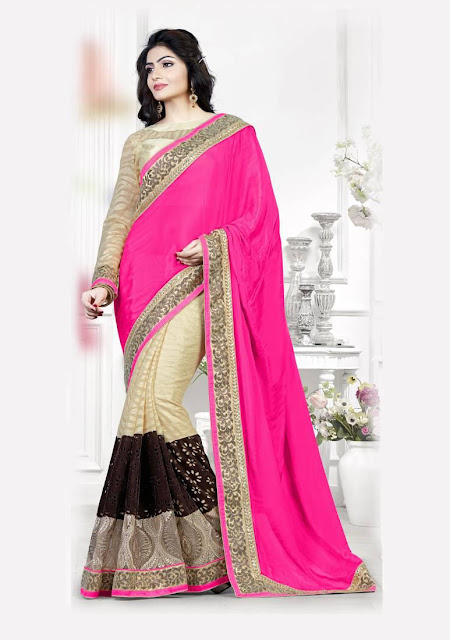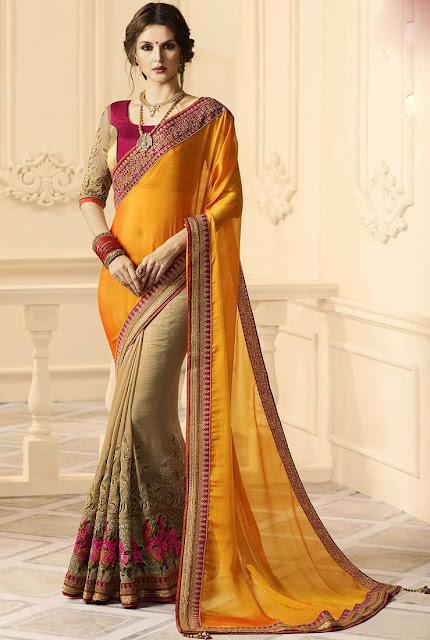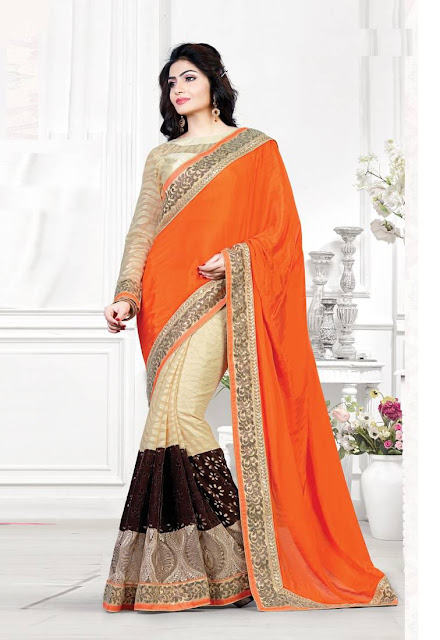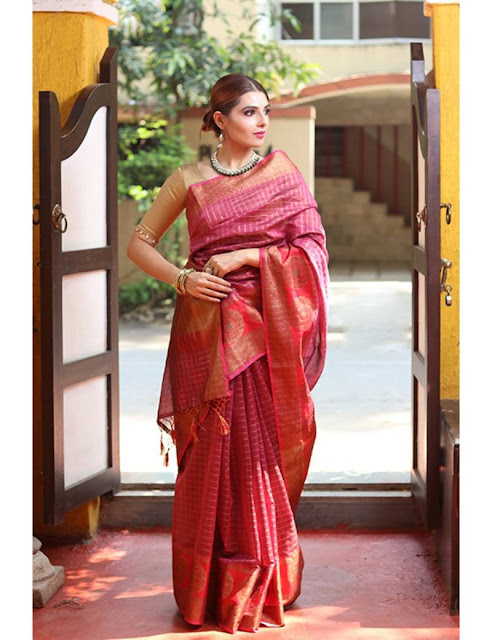Half Saree - The Return of Old Tradition!
The traditional half saree, was originally worn by young unmarried village belles who had just entered puberty in the south of India, namely, Tamil nadu, Andhra Pradesh and Kerala. This attire comprises of a full skirt with a matching blouse. A half-size wrap is tucked at one end into the waistline of the skirt and the other end is draped over the blouse like a regular saree. Since the skirt is flowing, there is more leg movement and simpler to wear. A long thick braid decked with flowers, completed the ensemble.
The traditional attire is known as ‘Pavadai Dhavani’ in Tamilnadu,
‘Langa Voni’ in Andhra Pradesh, ‘Mudum Neriyahtum’ in Kerala. This attire is
the mother of the current contemporary fashion found in the bizarre ramps and
global fashion shows, where the girls walk in with great style with the
adorable attires called, Ghagra-choli or Lehenga. This demure wear is making a
comeback in recent times, though there are variations designed around the
traditional styles. The Bollywood, Kollywood and Tollywood actresses are
perhaps responsible for bringing this style back in fashion. Teenagers of today
love to wear the half saree on
important festivals, such as Pongal and Onam, as the designers spare no effort
to make this simple outfit fashion desirable, so that not only city belles but
girls of any age can flaunt them.
Models flaunt the half saree with ease, as they walk down the ramp
in the new millennium, resplendent in the chic creations sporting various
materials, colors and style. Today, it may be worn either four to six inches
below the navel, to expose a lot of skin, or the blouse is worn very small to
expose maximum midriff. Rich materials are used such as pure silk, tissue
crepe, satin, georgette, chiffon or silk depending on the fitting occasion it
has to be worn. The Fishtail Lehenga looks great if you have curves to display.
The skirt sticks to the body from the waist and flares down as it reaches the
bottom. Check out the A-line skirt or the circular skirt to know which one will
complement your figure.
Teenage girls, influenced by western culture, wear these half
saris as they draw media attention. The designer wear that is in the market
today includes extravagant mirror work, zari work and embroidery. Bright colors
that were once touted as inauspicious are flaunted with clingy skirts to mould
and enhance the curves. Not to miss the real color and flavor of a half saree
in traditional Kanchipuram Silk.
Many girls use these types of half sarees on their wedding day, as
it is redefines style and allows the wearer an opportunity to adorn themselves
with heavy jewelry. The materials used are generally shimmery and come with a
lot of glitter to make the bride look stunning and different from the rest of
the crowd. Jewels are worn on her head, neck, arms, wrists and legs with
beautifully colored matching bangles. Henna is used in intricate patterns to
decorate the hands and feet as a necessary ritual that is still followed in
many parts of India. The half sari that was once worn by the “girl next door,”
is now worn in an effortless style, with classic elegance and is put together
in streamlined fashions that look super chic and stunning, with a creative
interplay of prints, colors and embellishments, to set many a heart on fire.






Comments
Post a Comment